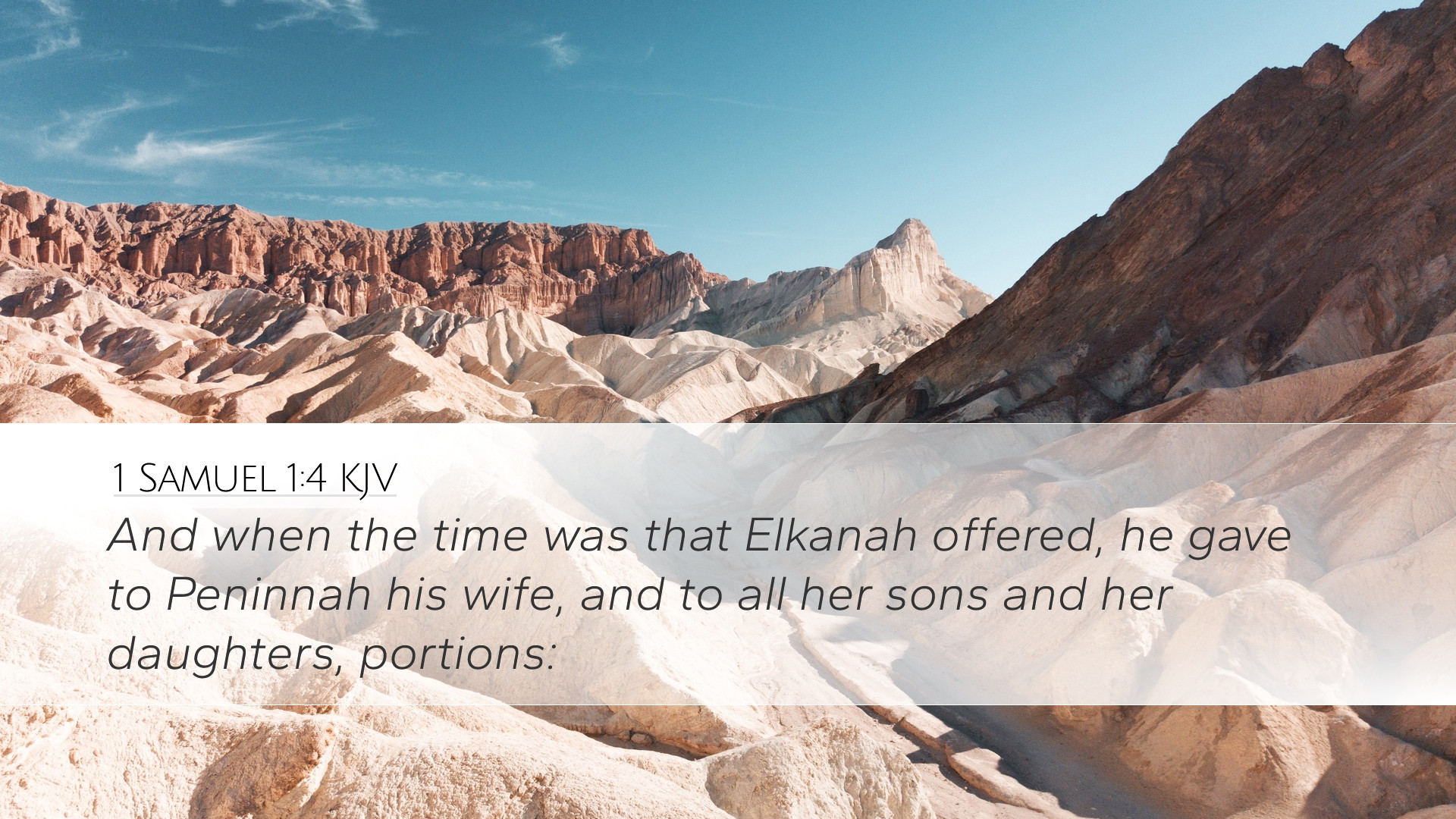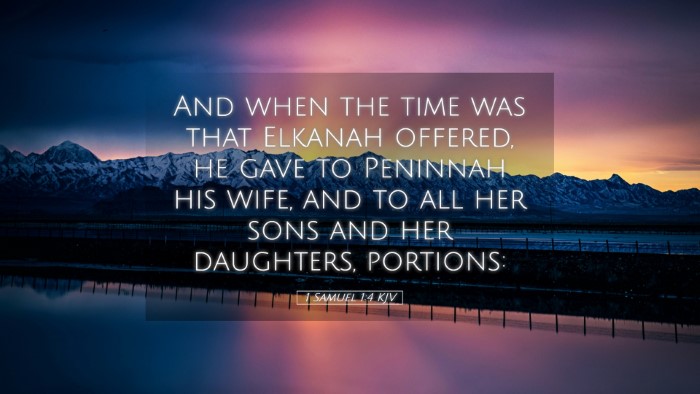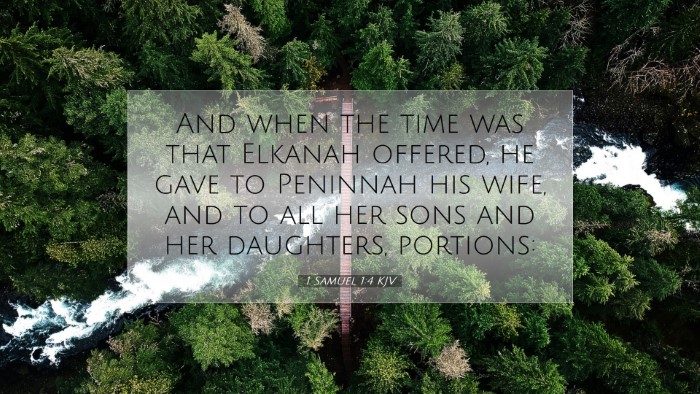Commentary on 1 Samuel 1:4
Verse Context: 1 Samuel 1:4 states, “And when the time was that Elkanah offered, he gave to Peninnah his wife, and to all her sons and her daughters, portions.” This verse introduces us to Elkanah, the central figure in the narrative of Hannah, and sets the stage for the profound themes of longing, family dynamics, and divine intervention.
Historical Context
Elkanah's Background: Elkanah was a Levite from the region of Ephraim, specifically from the family of Kohath, which highlights his line’s priestly heritage but also emphasizes the evolving nature of worship during the time.
Commentary Insights
From Matthew Henry
Matthew Henry emphasizes the significance of familial relationships and the responsibilities they incur. In his view, Elkanah's gift portions reflect not just a material offering, but an expression of his role as a husband and father. The act of offering signifies his duty to provide for not only Peninnah, but also for Hannah, who was favored despite her barrenness.
From Albert Barnes
Albert Barnes adds depth to the understanding of Elkanah's character by pointing out the cultural implications of polygamy during this period. Barnes notes that the mention of Peninnah and her children showcases a stark contrast to Hannah’s plight, which underscores the emotional turmoil and societal pressures surrounding childbearing. The way Elkanah divides his portions mirrors his attempts to navigate the complexities of his household, reflecting both love and duty toward his wives.
From Adam Clarke
Adam Clarke highlights the spiritual implications of offerings during this era. He indicates that the designation of portions is not merely a social obligation but connects deeply with the ritualistic practices associated with worship at Shiloh. Clarke’s analysis leads to a broader theological reflection on how physical offerings relate to spiritual blessings, thus intertwining the personal narratives of Elkanah and Hannah with the faith community at large.
Thematic Reflections
- Divine Favor and Human Struggle: The narrative not only illustrates Elkanah’s sense of justice and duty but also foreshadows Hannah’s deep longing for a child and her eventual and miraculous encounter with God.
- Parental Dynamics: The dynamics between Elkanah, Peninnah, and Hannah illuminate the challenges of love and favoritism, which resonate in today’s familial structures.
- Faith in Worship: Elkanah’s actions during the offered times highlight the importance of faithfulness in worship, setting an example of how to honor God in personal and family life.
Application for Today
For pastors, students, and scholars, the lessons from 1 Samuel 1:4 extend beyond the historical context. This verse serves as a reminder of the implications of our roles as leaders within our families, encouraging us to provide support and nurture in diverse familial situations.
Lessons for Leaders
- Compassion and Sensitivity: Elkanah’s care for both wives illustrates the need for leaders to be sensitive to the emotional landscapes of those they serve.
- Faithful Worship: Highlighting the significance of worship in community, leaders are encouraged to foster environments where all members feel valued and prayed for.
- Addressing Injustices: This passage encourages theological reflections on how communities can address inequities, drawing from Elkanah's understanding of fairness amidst competing familial interests.
Conclusion
1 Samuel 1:4 is a pivotal verse that opens the door to deep theological insights and practical applications. Through the lenses of Henry, Barnes, and Clarke, we gain a multi-faceted understanding of Elkanah’s character and the familial and spiritual dynamics at play. As we unpack these layers, may we find not only historical knowledge but also transformative truths that impact our lives today.


